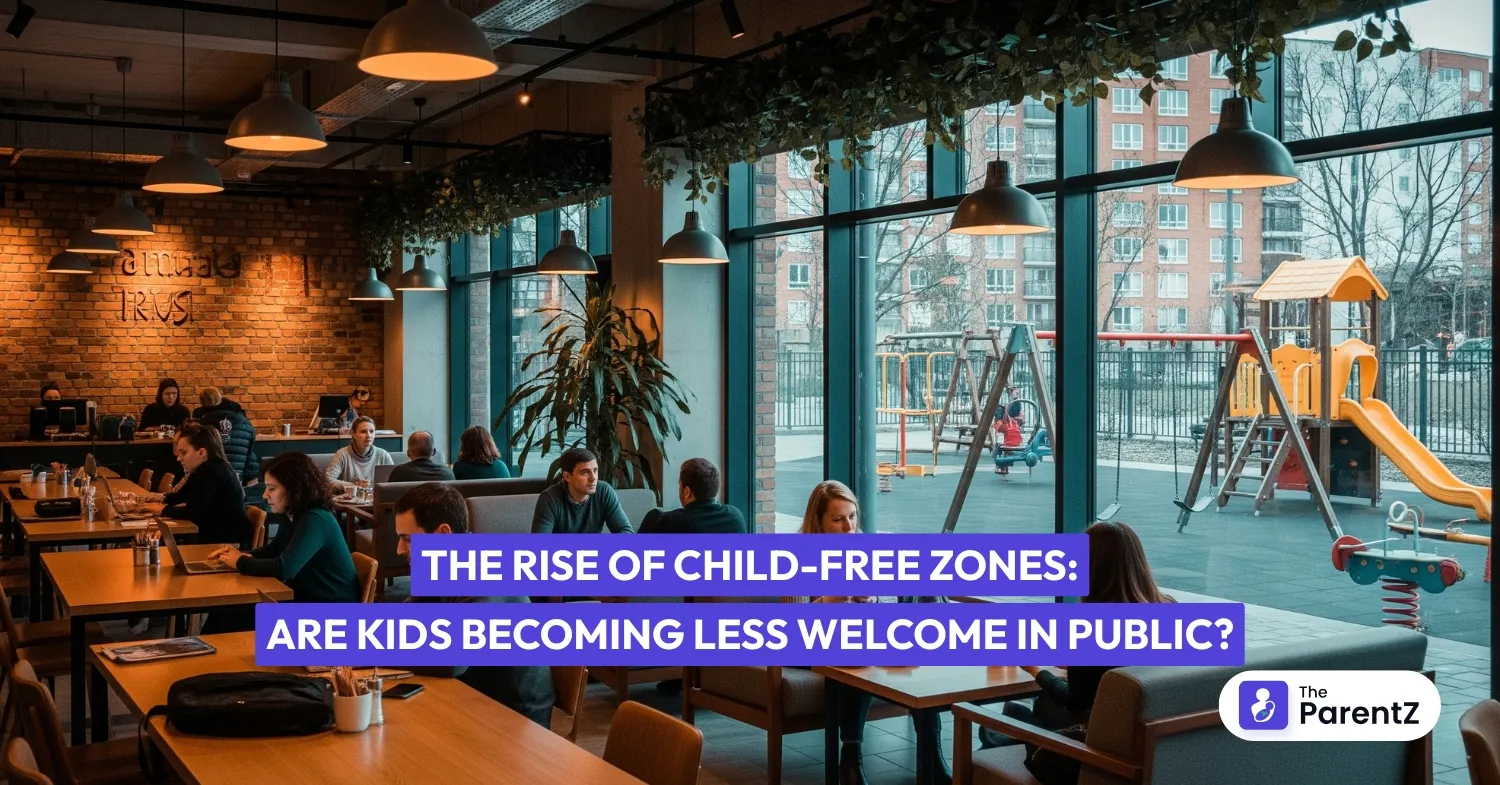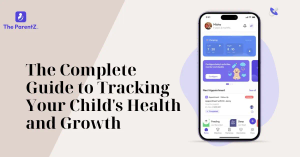Remember when taking your kids anywhere felt normal? When a family dinner at a restaurant didn't come with worried glances at other tables?
If you're a parent, you've probably felt it too, that subtle shift in how the world sees children in public spaces. Maybe it was the eye roll when your toddler dropped their toy on the airplane. Or the heavy sigh from the person behind you when your 4-year-old asked (loudly) why the sky is blue during a quiet moment at the coffee shop.
You're not imagining it. Child-free zones are popping up everywhere, and the conversation about where kids belong is getting more heated by the day.
What Exactly Are Child-Free Zones?
Child-free zones are spaces that specifically exclude children, usually to create quieter, more adult-focused environments. We're seeing them in:
- Restaurants (especially upscale ones)
- Certain airline sections
- Hotels and resorts
- Some retail stores
- Apartment complexes
- Movie theaters (during certain showtimes)
- Even some parks and recreational areas
The reasoning? Adults want peaceful spaces to relax, work, or socialize without the unpredictability that comes with children.
Why This Trend Is Growing?
The idea isn’t entirely new. “Adults-only” spaces have existed for decades, such as resorts, cruises, or spas, which often promote themselves in this way. But now, it’s reaching everyday spaces like neighborhood cafés, high-end restaurants, and even flights.
- The Childfree-by-Choice Movement: More adults are choosing not to have children, and they have disposable income. Businesses see an opportunity to cater to this demographic. These adults work hard, have money to spend, and want spaces that match their lifestyle preferences.
- Stress Culture: We're living in incredibly stressful times. Between work pressures, financial worries, and constant connectivity, many adults crave truly peaceful environments. For some, that means spaces without children.
- Different Parenting Philosophies: There's tension between different approaches to child-rearing. Some believe children should be seen and not heard in public, while others think kids should be free to be kids. This creates friction in shared spaces.
- Urbanization and Smaller Spaces: City living means tighter quarters. A crying baby in a small café affects everyone more than it would in a larger, more spread-out space.
From their perspective, it’s not about hating kids. It’s about creating an environment that matches their lifestyle or expectations.
The Parent Perspective: Feeling Pushed Out
If you're a parent reading this, you might be feeling frustrated. And that's completely understandable.
Take a mother of two from Seattle. She often feels like she needs to apologize for her children's existence. Her kids aren't being disruptive; they're just being kids. But the looks her family gets make her feel like they're invading spaces they don't belong in.
This sentiment is echoing across parent communities. Many families report:
- Feeling unwelcome in restaurants, even when children are well-behaved
- Anxiety about taking kids on flights or public transport
- Being asked to leave spaces when children make normal kid noises
- Judgment from other adults, even in family-friendly venues
The emotional toll is real. Parents are already juggling so much, and feeling unwelcome in public spaces adds another layer of stress.
The Other Side: Understanding the Appeal
Let's also understand why child-free zones appeal to so many people.
Consider a 35-year-old professional without kids. He works 60-hour weeks, so when he goes out to dinner, he wants to have a conversation without having to speak over a screaming toddler. That doesn't make him a bad person; it just means he values different things.
Adults seeking child-free spaces often mention:
- Wanting peaceful environments to decompress
- Celebrating special occasions without disruptions
- Having adult conversations without interruption
- Enjoying activities that don't accommodate children well
Neither perspective is wrong; they're just different.
The Real Impact on Families
This trend is creating real challenges for parents:
- Limited Options: As more venues go child-free, families have fewer choices for dining, entertainment, and travel. This can feel isolating and exclusionary.
- Increased Costs: Family-friendly venues often charge premium prices, knowing they have less competition. Parents end up paying more for basic experiences.
- Social Isolation: When parents can't participate in adult activities because children aren't welcome, it can lead to social isolation and relationship strain.
- Stress and Guilt: Constantly worrying about whether your children are welcome creates anxiety that should be unnecessary.
How Parents Can Navigate This Changing Landscape
Here are some practical strategies:
- Don’t take it personally: It’s rarely about your child, but about a general policy to suit a type of customer. Your child is not being judged as unworthy.
- Seek family-positive spaces: Many places still celebrate children, like libraries, community cafés, family events, and kid-friendly restaurants. Support these spaces so they continue to thrive.
- Prepare for challenging spaces: If you know a setting may be less welcoming, bring small activities, snacks, or quiet toys to help your child stay engaged.
- Speak up kindly: If you feel unfairly treated, express it calmly. Sometimes businesses don’t realize how policies make families feel until parents share their perspective.
- Remember, kids have a right to be in the world: They are part of society, and teaching them how to live in shared spaces is important. Don’t let judgment stop you from going out.
Finding Balance: A Path Forward
The goal shouldn't be to eliminate all child-free spaces or to force children into every environment. Instead, we need balance.
- For Businesses: Consider offering family-friendly hours alongside adult-only times. A restaurant might welcome families during lunch but focus on adult dining for dinner service.
- For Communities: Ensure that adequate family-friendly spaces are available. If adult-only venues increase, family-welcoming options should increase proportionally.
- For All of Us: Practice empathy: Parents dealing with a fussy child aren't trying to ruin your experience; they're doing their best. Adults seeking peaceful spaces aren't child-haters; they just have different needs.
Conclusion
So, are kids becoming less welcome in public? In some spaces, yes. But that doesn’t mean society is shutting out families. It’s more about creating different options for different needs.
For parents, this shift can sting, but it doesn’t erase the fact that children belong in the world. They deserve to be seen, heard, and included. At the same time, it helps to understand why others might seek child-free zones.
The best way forward isn’t taking sides, but finding balance, because public spaces should be just that - public. Spaces for everyone, families and non-parents alike.





Be the first one to comment on this story.